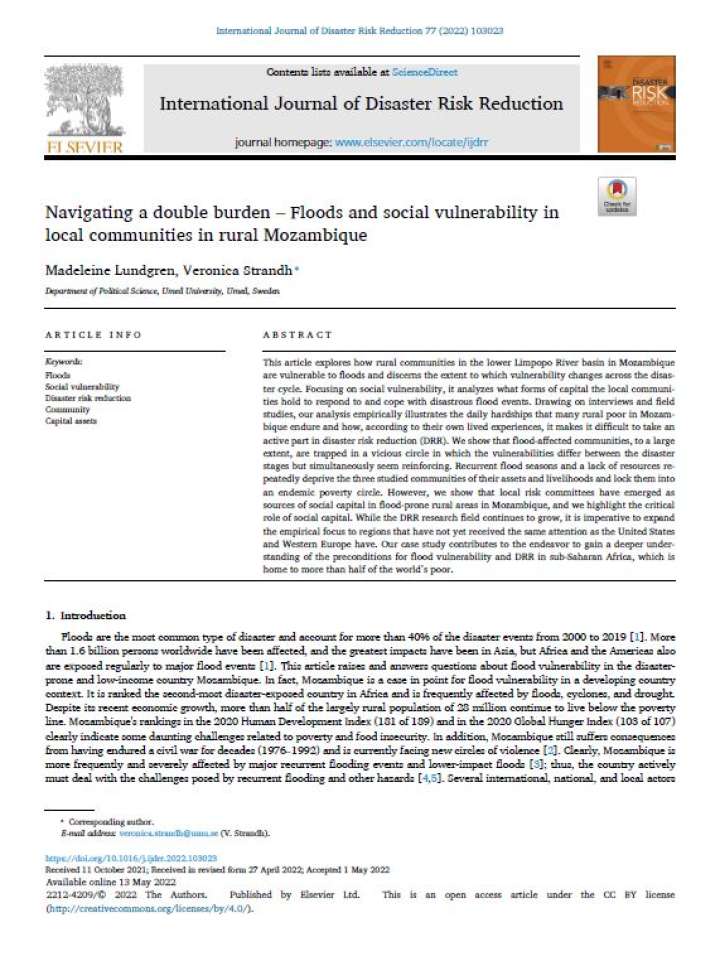Navigating a double burden – Floods and social vulnerability in local communities in rural Mozambique
This article explores how rural communities in the lower Limpopo River basin in Mozambique are vulnerable to floods and discerns the extent to which vulnerability changes across the disaster cycle. Focusing on social vulnerability, it analyzes what forms of capital the local communities hold to respond to and cope with disastrous flood events. Drawing on interviews and field studies, the analysis empirically illustrates the daily hardships that many rural poor in Mozambique endure and how, according to their own lived experiences, it makes it difficult to take an active part in disaster risk reduction (DRR).
The authors show that flood-affected communities, to a large extent, are trapped in a vicious circle in which the vulnerabilities differ between the disaster stages but simultaneously seem reinforcing. Recurrent flood seasons and a lack of resources repeatedly deprive the three studied communities of their assets and livelihoods and lock them into an endemic poverty circle. However, the researchers show that local risk committees have emerged as sources of social capital in flood-prone rural areas in Mozambique, and they highlight the critical role of social capital. While the DRR research field continues to grow, it is imperative to expand the empirical focus to regions that have not yet received the same attention as the United States and Western Europe have. This case study contributes to the endeavour to gain a deeper understanding of the preconditions for flood vulnerability and DRR in sub-Saharan Africa, which is home to more than half of the world’s poor.
Explore further
